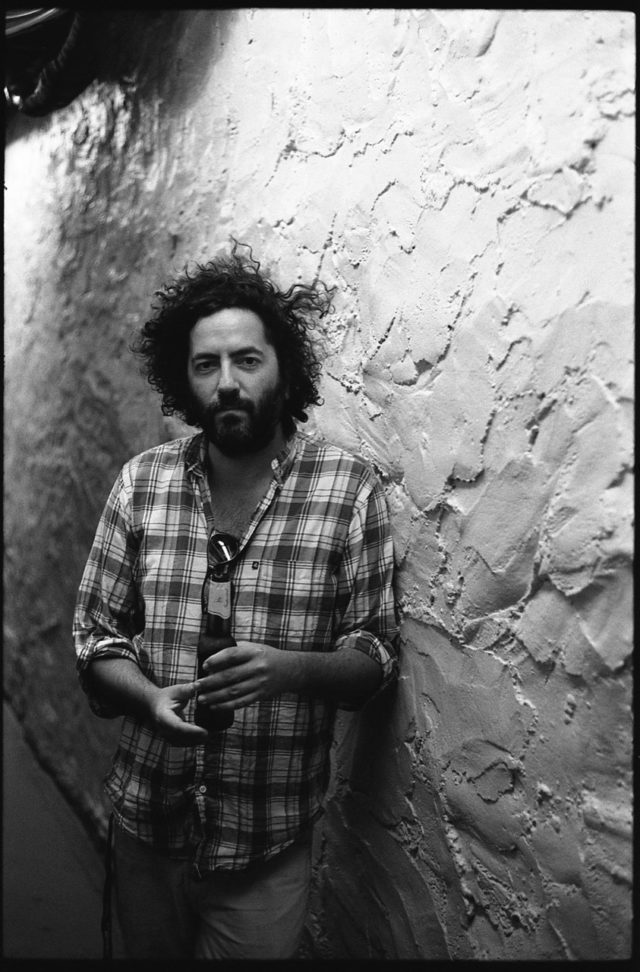
Sometime in 2016, Destroyer’s Dan Bejar found out that the original name for “The Wild Ones,” a song from English rock band Suede’s 1994 Dog Man Star, was originally called “Ken.” Next thing listeners knew, Bejar released an album by that name in 2017, filled with 13 songs that sound nothing like its namesake.
“I guess I just liked the title of their original demo,” Bejar says. “Compared to ‘The Wild Ones,’ [‘Ken’] felt so small and brittle and kind of banal. When there’s such a huge gap between things it’s kind of fun for me to fill in that space with my own ideas, hidden stories, mysteries.”
The creation of the two “Kens” couldn’t more different either: while Suede bore their iconic glam ballad out of lonely and drug-fueled animosity, Bejar birthed his at home in the comfortable suburbs of Vancouver, hanging out with his daughter and two pesky cats.
In fact, it turns out Bejar knew next to nothing about the real origins of the song — that’s not the point. Instead, he describes the inspiration as a physical takeover; he found out about the working title and his imagination ran wild with romanticized ideas about the melancholic grayness of 1990s England and about a country reeling in the aftermath of industrial failure. Provocative enough for a title, he thought.
Bejar admits he’s always struggled to summarize his songs and has been downright bad at determining the “true essence” of what he’d written. More recently, he’s gone from being bad at it to attacking the very notion of it, choosing titles that are “intentionally incongruous or that seemed overly officious.”
“They were just the top of the song. It didn’t matter,” Bejar says, or, in the case of his 2011 album Kaput, the top of the album. “I just liked the shape of the letters and the way the word looked. I didn’t put any thought into what it might mean.”
It’s not that Bejar’s work isn’t thoughtful. Arguably, he’s one of the most thought-provoking artists working in pop today. As the genre requires, his songs are ripe with cultural references but while most would be satisfied with cliches, Bejar manipulates them to mine their deeper meanings.
It’s as if Bejar hides under the cover of pop, like he’s a poet in disguise, so he can fit in somewhere, anywhere. He’s never been shy about claiming the label, as he sings in “Tinseltown Swimming in Blood,” he’s “off in the corner, doing poet’s work/ that’s alright for now it was just a dream of your blue eyes.”
His psychedelic voice mixes with symphonic synthesizers, overlapping with mysterious lyrics — it’s as if all of the stuff of his songs is his language and their emotional resonance is all that really matters.
After all, Bejar is perhaps most lovable for being a relatable guy. With his unkempt hair, untucked shirt and rolled sleeves he looks like he’s just a dude at the bar who wandered up on stage. He seems normal. And maybe he is, but then again, when he plays his music, he’s anything but.
“I’ve been in the music industry for so long that it all seems pretty ordinary to me,” Bejar says. “By the time it became official that I was a part of it, I’d already done so many records [with LCD Soundsystem] that I just had momentum, and a certain bullish approach — make records, perform at concerts, come home — it’s one I’ll go down swinging with.”
With 13 albums and a handful of EPs under his belt, the 45-year-old musician is as prolific as he is determined to finish his life out the same way he went in, constantly picking inspiration from the air, random as it might be, and working it into songs. He’s old enough not to question where or how the muse strikes him and, as he tells it, confident enough to write his songs with a disregard for convention.
“I think about songs all the time, not like I sit down and think, ‘It’s time to write a song,’ but more like they are a mist that I walk through and then, suddenly, a song is in my head,” Bejar says. “I get off on it, and I want to get it out of my head, no matter what.”
He stops and starts laughing, almost hysterically.
“So don’t be surprised if you see me in the corner of the grocery store mumbling and humming stuff into my phone.”
On the Bill: Destroyer. 8 p.m. Monday, Feb. 5, Bluebird Theater, 3317 E. Colfax Ave., Denver. Tickets are $20.














